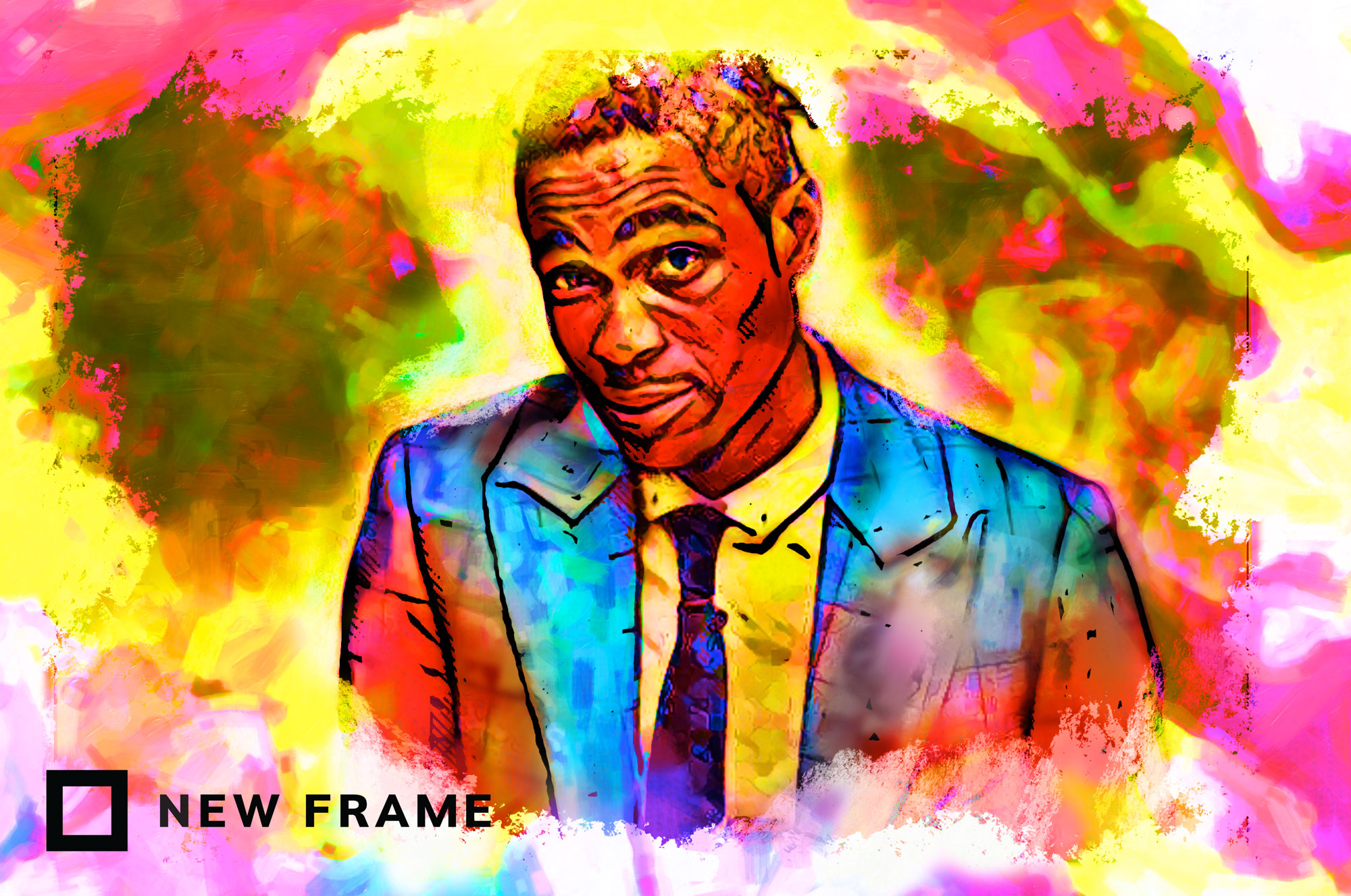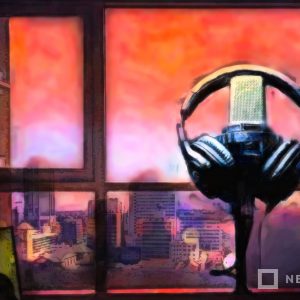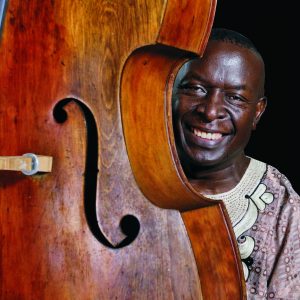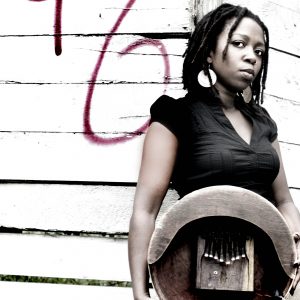Soul Jah Love’s life of multitudes
The late Zimdancehall musician was part of a generation of originators who, from the Jamaican idiom and format, created a grammar of ghetto pain and resilience.
Author:
26 February 2021

In mapping out the legacy of Soul Jah Love, the Zimdancehall star who died last week at 31 of diabetes complications, one naturally has to go to Jamaica – the island which gave the world the idiom of rap-style chanting. An obvious reference is U Roy, the Jamaican prototypical DJ who also died last week, at the age of 78.
Even though Daddy U-Roy, as he was affectionately known, didn’t invent the toasting style which later morphed into rap when it got to the United States (before him, Count Machuki had been doing it), it was when the DJ had the microphone in his hands that the form became commercially viable. This is why U-Roy is sometimes described as the “originator” because, as he said – referring to his chart-topping studio hits – “I’m the first man who put DJ rap on wax, you know.” What has come to be a staple radio jingle, for instance, the couplet, “This station/ rules the nation,” was first chanted by U-Roy on King Tubby’s and, later, Duke Reid’s sound systems.
Yet, since Soul Jah Love sang and performed his Jamaican-influenced rhymes and raps in Shona, one also has to go into poetry in the language to look for the chanter’s possible influences and ancestors.
Related article:
Even though Sekuru Gora (born Thomas Wadharwa) was an accomplished mbira player, some say his real calling was as a vocalist and chanter. For most of his career, Sekuru Gora, who died in 2002, worked together with the mbira maestro Ephat Mujuru on whose albums – Africa and Muti Mukuru – he featured his poetic chants, kudeketera. Sekuru Gora drew from an ancient repertoire of wisecracks, verse and idiomatic expressions, a performative-poetry tradition passed on by legendary poets and chanters like Hakurotwe Mude of the Mhuri ye kwa Rwizi fame, which he improvised to great comedic effect.
In the song Bangidza on Mujuru’s 1987 album Muti Mukuru, over a rich, resonant template consisting of the mbira, rattles, and the deep low-resounding voices, Sekuru Gora’s voice soars to declare a funny observation: “Vasikana vatishamisa nekuita man’a/ vatipedzera jecha munzira (The girls in this village have cracks on their feet so wide that they swallow up all the sand on the path).”
Gora’s insults are equal opportunity, aimed at all genders. In the same song, he has the memorable “diss” verse: “Vane mhanza musakame mombe/ Ndimi munokonzera mhuru kuvhunduka (Bald men should not be allowed to milk cows/ It is them who are causing calves to have nightmares).”
A gifted artist
Without doubt, one of the most prolific and gifted Zimdancehall artists of the 2010s is Soul Jah Love, born Soul Muzavazi Musaka, and known to his fans as Chibaba or Sauro. The connection between mbira and gwenyambira, the instrument’s players, is one he was aware of, as can be heard in the 2016 album Dayi Hupenyu Hwaitengwa, in which he combined the instrument and his vocals.
In the song Mhondoro, Soul Jah Love claims his place in the pantheon of mhondoro: departed royals and heroes, fighters and hunters who become great supra-territorial spirits after crossing over to the next world.
Related article:
A friend suggested that, perhaps more than anyone else, in the last couple of years it was Soul Jah Love who did more to shape Shona slang – coining, reinventing, and popularising words which came to define how the language was used in the everyday.
Some of the words in current use in Shona include: chigunduru, to refer to homeless people who lie without hope on pavements; pamamonya ipapo, a phrase which talks about a slight, “unimportant” person staking a seat on a table with giants and so-called VIPs; hauite, you are a champion; chibaba, a big man or godfather. All these were either invented or made popular by the musician who was known for clever and inventive wordplay, and who boasted a vocal range quite uncommon in Zimdancehall. It could see him soar or crawl, sometimes even assuming a gravelly vocal texture.
I watched Soul Jah Love only once at a great show at Book Café, a small venue in Harare’s central business district, some time in 2014. This did not prepare me for another gig, two years later, in Harare, which I attended on assignment with Zimbabwean photographer, Cynthia Matonhodze. The show, at the Mbare Netball Complex, a sports amphitheatre that can host some 5 000 people, was supposed to start at around 9pm, but when we arrived the crowd was still sparse.
However, in an hour or so, the crowd started filling up. But, even by 2am, Soul Jah Love had not gone on stage. Tired, we retired for the night. Still, there were easily a couple of thousands of young people who had packed the venue, whose energies hovered over the place, as they waited for the star of the night.
Mbare
The amphitheatre in which Soul Jah Love held the show, built in the optimistic 1990s as a venue for the All Africa Games which Zimbabwe hosted in 1995, is in Harare’s oldest ghetto of Mbare.
The township used to be known simply as Harare – a name whose variants are Haarare, Haarari and “Harava”, monikers which have floated around the locale now occupied by the modern city of Harare. When the name “Harare” was adopted in 1907, as the name of Salisbury’s first African township, it was borrowed from a royal legend, Harava/ Neharava, a chief in the surrounding area who, it was said, was always up, weapons ready, when his enemies attempted dawn ambushes. Haarare uyu (this one doesn’t sleep), so said the chief’s adversaries. And so the legend was born.
Related article:
When the name was used at the turn of the 20th century by the new colonial lords, it was not to celebrate Haarare, the insomniac one, eyes puffy and red, head sagging about his shoulders as if heavy. It was but the first spatial manifestation of the British settlers’ agenda of race-based segregation.
As the plans for the segregated city, Salisbury, were being drawn up – whites in the northern and eastern environs of the city, Blacks in the southern and western far-flung parts – the city’s mayor Dudley Bates decided to remove the 3 000 Africans who already lived in the city, around the Kopje area and its environs, and resettle them far away from town.
A new site of 50 acres, to the south of the Kopje and the railway line, was found, according to the Japanese scholar of Zimbabwe, Tsuneo Yoshikuni, in his fascinating study, African Urban Experiences in Colonial Zimbabwe: A Social History of Harare before 1925.
The new location was near the Pioneers’ Cemetery, a slaughterhouse and sewage works. In other words, the township of Harare grew in the vicinity of death, blood and shit. And not a lot has changed since then, despite over four decades of independence.
A spiritual home
It was naturally around the township of Mbare that Soul Jah Love’s myth of the downtrodden “ghetto youth” developed – the homeless person, the figure of the chigunduru he endlessly referenced in his music. It is emerging that, in fact, the dancehall star grew up in Waterfalls, formerly a suburb for lower middle class whites, and attended relatively good schools that Africans were not allowed in before integration (which came with independence in 1980).
I can see why he had to adopt the ghetto of Mbare as his spiritual home and muse, for had he gone to a dancehall studio and been asked where he came from and replied Waterfalls, he would have been laughed out of the room, for Zimdancehall is the music of the ghetto. Though not a ghetto boy, the musician saw his fair share of struggles too. He was a toddler when his mother died, for example.
But, from the one detail of his mother’s death, he created a whole myth about his origin and who he was. After the death of his mother, whose name was Sthembeni – he also went as mwana wa Sthembeni (Sthembeni’s child) – he is forced into the streets of Mbare where he grows up, hustling, and through his “street smarts” and sheer talent, finds a way into a studio, proving himself to be a gifted lyricist. This is the story he told.
Take, for instance, one of the most important songs in his discography: Pamamonya ipapo. In the song, he portrays himself as the thin, malnourished dog that manages to wrest the bone from more powerful, well-built rival canines. The mythology of the underdog is helped by the fact that Soul Jah Love was of thin build. The theme of the “ghetto youth” who has excelled is one he had covered before on the 2014 tune, Ndini Uya Uya, in which he gives his own take of the biblical metaphor of the stone that the builder refused. The stone, of course, becomes the chief cornerstone.
Yet towards his end, as shown in the song Ndichafa Rinhi (When will I die?), a tune released soon after his death, it was clear that Soul Jah Love was a troubled soul, battling depression and possibly abusing alcohol and other substances. He had become infamous for not keeping recording appointments. He even would sometimes not pitch to concerts when he was booked to perform, or showed up late.
A shift to fit circumstance
However relatively comfortable Soul Jah Love’s upbringing was, there was no doubt that he and his peers are originators, in the sense that they took the Jamaican idiom of toasting and, by using Shona, made it their own. Worth mentioning alongside Soul Jah Love are chanters and singers like Killer T, Seh Calaz, Kinnah, Winky D, Guspy Warrior, Enzo Ishall and Tocky Vibes.
They created a grammar of ghetto pain and resilience that has forced its way into the mainstream and gone abroad – “outernational” as they would say. It is a grammar and music that elites could no longer ignore. This explains the decision by the Zimbabwean government to declare Soul Jah Love a liberation war hero and give him a state-assisted funeral.
Related article:
In 2017, Grace Mugabe was at a rally campaigning to succeed her husband Robert Mugabe (now late). And Soul Jah Love was scheduled to perform.
As the main proceedings were still underway, he began to make moves on the other stage where he was supposed to be an act. The throngs who had been following the official speeches turned to the stage where the star was, riling the master of ceremony, who stood up and said: “Soul Jah Love hachisi chinhu. Mukadaro haaridze pano (Soul Jah Love is not a thing. If you continue behaving like this, he won’t perform for you).”
A few days later, showing his ability to think on his feet, Soul Jah Love coined a phrase referencing what was meant to be a put down: “Soul Jah Love hachisi chinhu – zvinhu.”
The literal translation is: “Soul Jah Love is not a thing – he is things.”
It was a reference to his old theme of the “ghetto youth” who is more than a thing, who is things – the downtrodden chigunduru who has done well. But I prefer a meaning closer to the American poet Walt Whitman’s line: “I contain multitudes.”
In some ways, Soul Jah Love’s music encompassed the pain and aspirations of the multitudes of oppressed and impoverished Zimbabweans still waiting for the promise of independence to become real.




